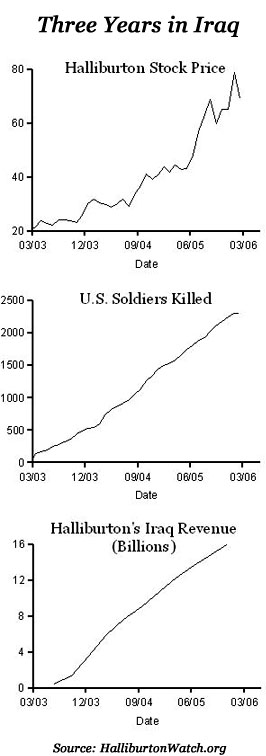General William Tecumseh Sherman declared that “War is hell,” but every grunt or swab that has ever served knows that, more than anything else, war is work. Staging operations, killing people, breaking their things, and sometimes cleaning up the mess, all involve tremendous amounts of human labor.
Current estimates are that there are at least three workers in support positions behind every warrior on the front line. They build the fortifications, bag the dead, treat the wounded, cook the food, clean the latrines, load the trucks, etc. Because of mass underemployment in the US, the price of soldiers is still relatively cheap, and, recently, a federal judge has issued a ruling on support war workers that holds the line on their wages and keeps war affordable.
 US District Judge Melinda Harmon said in a ruling issued in the last week of September that federal wage-and-hour laws don’t apply to work done outside the US. The ruling was in response to a lawsuit filed in November by five former employees who claimed that Halliburton and its subsidiaries in Iraq and Kuwait shorted 20,000 to 40,000 truck drivers, cooks, mechanics and other war workers millions of dollars in overtime pay.
US District Judge Melinda Harmon said in a ruling issued in the last week of September that federal wage-and-hour laws don’t apply to work done outside the US. The ruling was in response to a lawsuit filed in November by five former employees who claimed that Halliburton and its subsidiaries in Iraq and Kuwait shorted 20,000 to 40,000 truck drivers, cooks, mechanics and other war workers millions of dollars in overtime pay.
The former employees claimed in the lawsuit that they routinely worked 80 to 100 hours per week.
This ruling was issued in spite of the fact that an overtime requirement was included in the Logistics Civil Augmentation Program (better knows as LOGCAP), the contract signed by the US Army and Halliburton in 2001. The question of whether Halliburton, which regularly bills the government on a cost-plus basis, received the overtime compensation was not addressed in the lawsuit.
Also not addressed in the ruling was the fact that the current military campaigns of the US are the most privatized military enterprises in history. To the age-old adages “war is hell” and “war is work” must be added a third:
“War is more profitable than ever.”
Richard D. Vogel is an independent socialist writer. He has recently completed a book, Stolen Birthright: The U.S. Conquest and Exploitation of the Mexican People.
|
| Print
